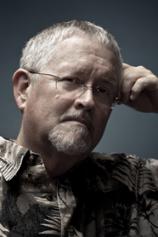Magic Street
Review
Magic Street
Reading MAGIC STREET has just stirred a very interesting memory. A few years ago, controversy erupted in Canada over a docudrama made by a filmmaker of Caucasian background concerning the history of our First Nations citizens. From the news coverage of that event, I learned a new term: "cultural appropriation."
Spokespeople for Aboriginal and First Nations communities questioned why a white person was telling the story of brown people, the inference being that no permission had been granted to mine someone else's culture for commercial purposes.
Ironically, this only-in-Canada-eh? kind of incident has everything to do with middle class America's darling of innovative surreal fiction, Orson Scott Card. On the surface of things, Card is motherhood and apple pie personified, even in his forays to outer space. But his deeply held and authentically lived-out Mormon faith infuses even his most adventurous writing with a sincerity that far surpasses political correctness.
Now why is this so important? It's because Caucasian-to-the-core Orson Scott Card has dared to explore what it might be like to live inside African-American skin. In telling the bizarre but hauntingly beautiful story of Mack, a contemporary urban Shakespearean changeling child and an even stranger power contest in Fairyland (yes, that's right...Fairyland!), Card enters the imaginative wealth of a culture he admittedly will never fully know.
Several critically acclaimed short stories formed the run-up to the full-length book Card had planned for years but which, he admits in a thoughtful Acknowledgments essay, took him years to pull together. While he doesn't actually use the term, the spectral sin of "cultural appropriation" must have hung around in the author's consciousness like a subtle warning to get it right...or else! The compelling result shows he needn't have worried.
What Card actually did with a real Black neighborhood and the fictitious people living there was to introduce a fantastical/dramatic element that may have been born from an Anglo-European psyche, but has come to embrace all humanity --- none other than the tales of the Bard himself.
By turns, MAGIC STREET (the title being a conflation of the child-hero's name and his neighborhood) flits in and out of scenes taken straight from Shakespeare's A MIDSUMMER NIGHT'S DREAM, with a dose of salacious subtext added for good measure. The power struggle between Titania and Oberon translates with startling immediacy into the sedate world of middle-class 21st-century Baldwin Hills, while winsome Puck of the original comedy behaves more like mischievous Black Peter who puts the coal in Dutch children's Christmas clogs.
Card might have taken off-the-shelf literary and social components to create this latest in a long string of commercially successful novels, but the delight and daring of MAGIC STREET lie in its remarkable fusion of elements that do indeed magically change people's lives...from the inside out. It made me think differently about being "different" --- and different is good.
Reviewed by Pauline Finch (paulinefinch@rogers.com) on January 7, 2011
Magic Street
- Publication Date: June 27, 2006
- Genres: Fantasy, Fiction, Science Fiction
- Paperback: 416 pages
- Publisher: Del Rey
- ISBN-10: 0345416902
- ISBN-13: 9780345416902





